The proceedings are available:

The program is available:

Fujita Lecture
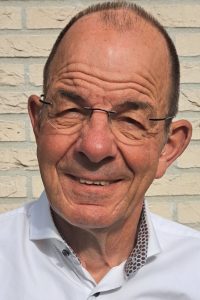
Interactions at the front face of EPB and slurry shield when drilling in sand
Prof. Adam Bezuijen
Biography
Prof. Adam Bezuijen, an Emeritus Professor at Ghent University, boasts over 40 years of expertise in geotechnical engineering. He has been a member of TC28/TC204 since 2002, serving as the vice-chair and chair of TC204 for a decade (2012 – 2022). Additionally, he is a member of TC 104 Physical Modelling and has played roles in CEN-TC189 Geosynthetics, contributing to the standardization of test methods for geosynthetics and CE-marking.His significant contributions include advancing knowledge in face stability (emphasizing groundwater flow for slurry and EPB machines), tail void grouting, slurry properties, infiltration, cake formation, and foam properties and behavior. Bezuijen served as the promotor for 8 PhD projects and participated 19 times as a member of a PhD jury. With a career spanning over 40 years at Deltares and its predecessors, as well as almost 10 years at Ghent University as a professor in soil mechanics and geotechnics, he has left an indelible mark on the field. Adam Bezuijen’s impact is further highlighted by his contribution to over 400 publications.
Presentation abstract
The construction of a tunnel with a tunnel boring machine (TBM) influences the soil in front of the TBM. Excess pore pressures are measured in saturated sand in front and around the approaching TBM, which influences the stability of the soil. The magnitude of these pressures depends among others on the soil layering, drilling velocity, permeability of the soil and the pressure in the mixing chamber. The pressure buildup when drilling starts and the decay when drilling stops depends on the plastering properties of the slurry or the foam mixture in a layer at or just in the front face. Laboratory tests have shown that the permeability of that layer depends on the slurry or foam properties, the applied gradient, but also on the amount of sand in the slurry or foam mixture. For a slurry shield, the so-called filter cake at the front face is important for stability of the front face, also when elevated air pressure is used in the excavation chamber for maintenance. Most laboratory experiments on slurry and foam infiltration are performed on saturated sand. However, partly saturated conditions occur regularly. Recent tests show the influence of saturation.The paper presents an overview of older and recent research with respect to the slurry and foam interactions at the front face. Measurement results are explained with theoretical models.
Plenary Keynote Presentations
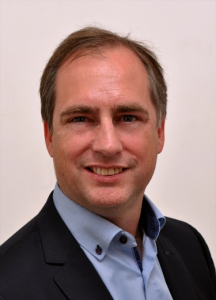
Smart Monitoring of Tunnels
Prof. Wout Broere
Biography
Dr. Broere, a Professor of Underground Space Technology at Delft University of Technology, holds a PhD from the same institution (2001) and is a Fellow of the International Society of Trenchless Technologies (ISTT). His research spans trenchless technologies, large diameter tunnelling, underground space utilization, site investigation, physical modeling, and offshore foundation engineering. With extensive consulting experience in offshore, foundation engineering, and major tunnelling projects globally, he has advised municipalities on integrating underground space into urban development. Currently serving as the Editor-in-Chief for Tunnelling and Underground Space Technology, Dr. Broere is actively involved in numerous committees and boards, including NSTT, ISSMGE TC204, ITA-AITES Committee on Operational Safety in Underground Facilities, and COB’s Steering Board on Structural Aspects of Tunnels. He has published widely and supervised numerous BSc, MSc students, and PhD projects. Leading research programs such as Futureproof Tunnels and Talking Assets 2025, Dr. Broere addresses challenges in monitoring, maintaining, and refurbishing aging underground infrastructure.
Presentation abstract
Monitoring of tunnels has evolved beyond simple displacement monitoring at a limited number of locations in the tunnel. A multitude of sensor types is available nowadays, making it possible to monitor displacements and deformations as well as material degradation related processes continuously. Automated, online, data collection makes monitoring not only more available, but also allows for continuous monitoring of tunnel locations where in-person access difficult or impossible. The result is a rising number of monitoring applications, not only for construction safety and control or purely for research purposes, but also the long-term use in tunnel operational control and structural health assessment. The increased monitoring offers exciting possibilities in tunnel monitoring, but also increases the need to define clearly the needs and purposes of the monitoring solutions before sensor installation.
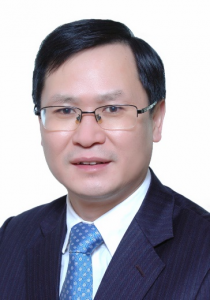
Deformation of Shield Tunnels Induced by Adjacent Excavation
Prof. Ren-Peng Chen
Biography
Prof. Ren-Peng Chen currently works as a professor in College of Civil Engineering and the head of Research Center for Advanced Underground Space Technologies, at Hunan University, China. His research focuses on the soil arching effect, transportation geotechnics, urban underground construction and maintenance. Prof. Chen has served as an investigator on over 50 research projects with grants received from national government agencies including Natural Science Foundation of China (NSFC), Ministry of Science and Technology (MOST), Ministry of Education (MOE), province government agencies, numerous design institutes and construction companies. He has published more than 300 peer-reviewed journal articles, and one of which won the Outstanding Journal Paper Award of ASCE. He is the nominated member of Geotechnical Infrastructure for Megacities and New Capitals (TC305), and Asian Regional Technical Committee of Urban Geotechnics of ISSMGE.
Presentation abstract
Shield tunneling beneath existed shield tunnel is a common recurring problem. Excessive settlement and severe disease might occur for the existed tunnel if no appropriate countermeasure is adopted. Evolution of the upward soil arching induced by the shield tunneling is a key factor influencing the responses of the existed tunnel. This research develops a theoretical model to describe the developing upward soil arching associated with the magnitude of ground volume loss. Furthermore, the theory for depicting the interaction between the soil arching and existed shield tunnel is proposed. The nonlinear bending and shearing stiffness of the assembled tunnel is considered, as well as the degradation in ground stiffness in loosened zone. Approaches regarding deformation control for the overlying existing shield tunnels are developed by mitigating the expansion of the loosened zone and reinforcing the loosened zone. Finally, a case is also introduced.
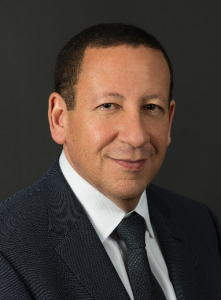
Exploiting the Renewable Energy Resources of Our Cities’ Underground
Prof. Lyesse Laloui
Biography
Prof. Lyesse Laloui is an active scientist at the Swiss Federal Institute of Technology, EPFL. He is a member of the Swiss Academy of Engineering Sciences and the vice-president for Europe of the International Association of Soil Mechanics and Geotechnical Engineering. He has a strong focus on sustainability and geo-energy topics. Prof. Laloui’s efforts to help meet society’s needs in areas such as climate change, renewable energy and the optimisation of natural resources have been recognized and awarded by the European Research Council with an Advanced ERC Grant, received Honorary Doctorate Causa Degrees from Heriot Watt University (UK) and Cluj Technical University (Romania), the “Excellent Contributions Award” of the International Association for Computer Methods and Advances in Geomechanics, the “Roberval Award”, the “RM Quigley Award” and delivered the “Vienna Terzaghi Lecture”, the “Vardoulakis Lecture”, the “G.A. Leonards Lecture”, and the “Kersten Lecture”. He is the Founder and Honorary Editor-in-Chief of the Elsevier Geomechanics for Energy and the Environment journal. His research portfolio includes 13 written and edited books and over 350 peer reviewed papers; resulting in more than 18000 citations. Two of his papers are among the top 1% in the field of Engineering. Prof. Laloui has given keynote and invited lectures at more than 40 leading international conferences.
Presentation abstract
This lecture focuses on innovative technologies that can efficiently and economically tap renewable energy from the urban underground: energy geostructures. These innovative technologies merge geotechnical engineering with energy efficiency, offering both structural support and heating/cooling functions for buildings and infrastructures. The performance of these technologies is governed by multiphysical interactions and phenomena driven by thermal and mechanical loads. Three decades of research have explored the fundamentals of the behavior and performance of energy piles, walls, and tunnels, yielding a variety of tools that can currently serve their analysis and design. This work encompasses this knowledge and bridges the gap between research to practice, showcasing an experimental and computational study that offers valuable insights into the real-world performance of an energy infrastructure installation.
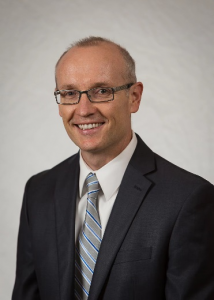
The Reduction in Geotechnical Risk on Underground Projects Using Information Engineering and AI
Prof. Michael Mooney
Michael is the Grewcock Chair Professor of Underground Construction & Tunnel Engineering at Colorado School of Mines. He directs the Center for Underground as well as the post-graduate degree program and post-graduate online certificate in Underground Construction & Tunnel Engineering. Michael’s research involves pressure balance TBM tunneling, large diameter liner design, AI and the digital underground, and control of ground and building deformation. He has authored over 200 peer-reviewed publications. Michael was born in the UK and moved to the USA as a child. He received a doctorate in geotechnical engineering from Northwestern University and a masters in structural engineering from the University of California. Michael is a registered Professional Engineer and a consultant on numerous tunneling projects in the US and internationally.
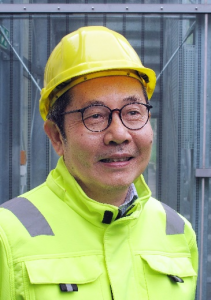
Learning from Failures in Tunnelling
Prof. Wei Wu
Biography
Prof. Wu is director of the Institute of Geotechnical Engineering at the Universität für Bodenkultur (BOKU), Vienna, Austria. He received his PhD from Karlsruhe University, Germany in 1992. Afterwards, Dr. Wu entered the cut-and-thrust world of engineering consulting. He joined Lahmeyer International Ltd in Frankfurt, Germany in 1992. In 2002, Dr. Wu moved to Electrowatt Infra Ltd in Zurich, Switzerland. During his time at Frankfurt and Zurich, Dr. Wu had worked on some major tunnel projects of the world, e.g. Metro Athens, Greece and Gotthard Base Tunnel, Switzerland. In 2003, he was offered the chair professor at BOKU. Prof. Wu is the editor-in-chief of Acta Geotechnica, and has coordinated some large research projects funded by the European Commission.
Presentation abstract
To paraphrase Tolstoy “Successful tunnel projects are all alike; every unsuccessful tunnel is unsuccessful in its own way’’. It is important to study tunnel failures in order to avoid similar pitfalls. This paper reports two collapse cases during the construction of the highspeed rail-link in Germany. The tunnels were constructed according the New Austrian Tunnelling Method. This case histories bring out several important aspects for the excavation and support of tunnels. First, it shows the importance of interpretation of instrumentation data and the role of numerical analyses in the decision-making process. Second, it reveals the limitation of the observational method for such processes where spontaneous loss of stability is involved. Moderate or even small deformation does not necessarily mean that sufficient safety is still available. Last but not least, a competent site supervision is indispensable for safe and economic tunnel construction.